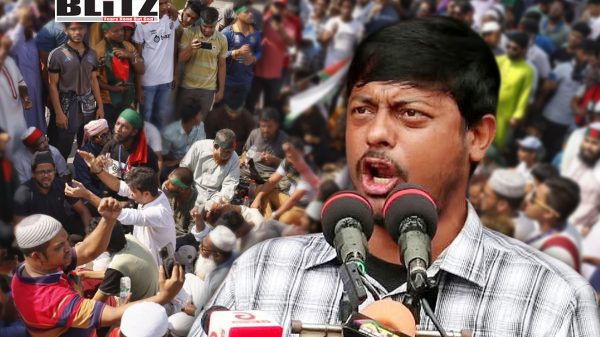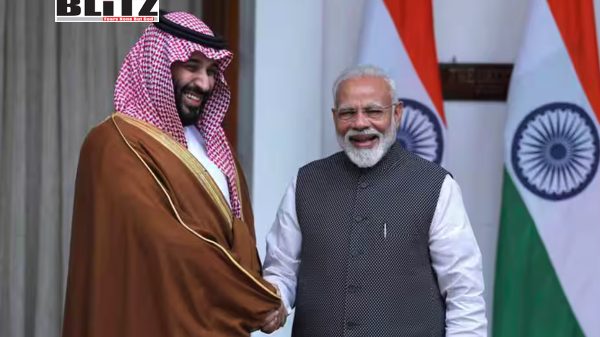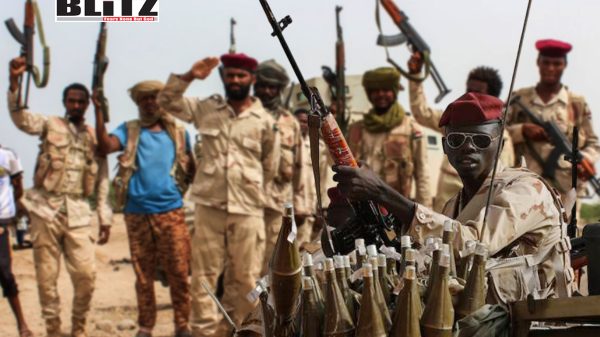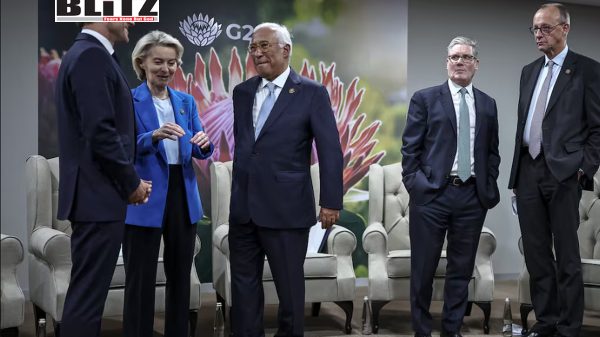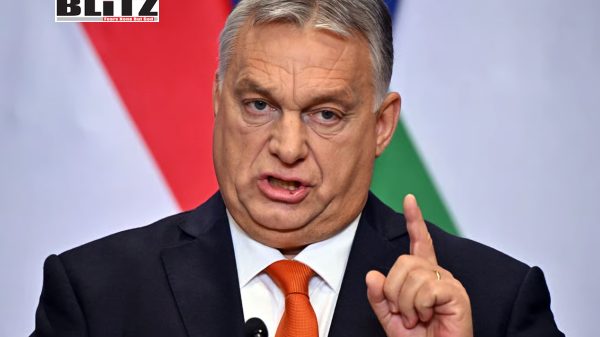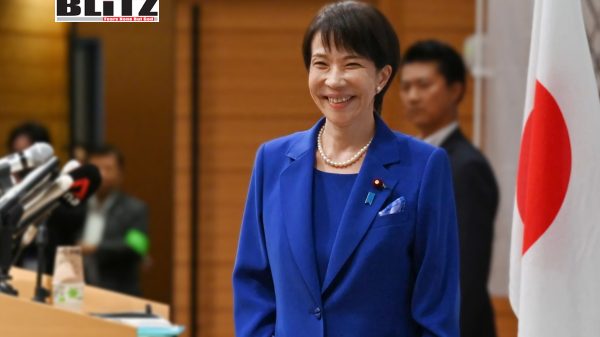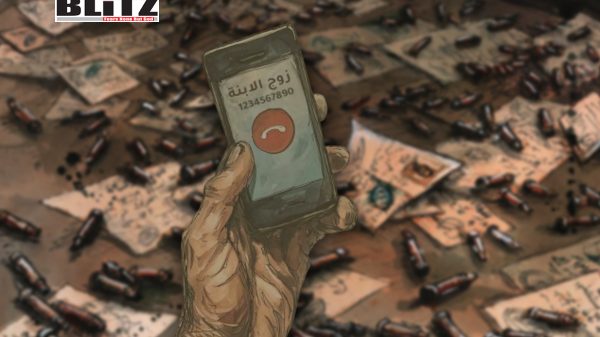Russia rejects US proposal to pressure China on nuclear talks: Lavrov declares it ‘unthinkable’
- Update Time : Friday, October 17, 2025
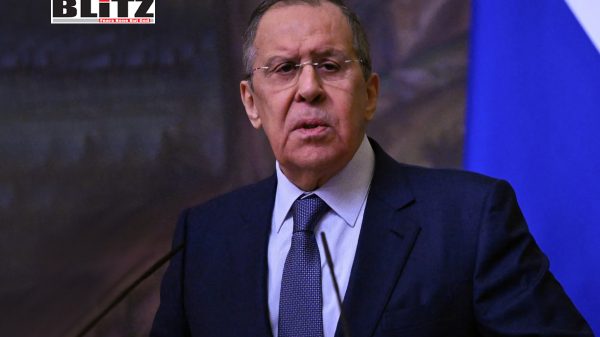
Russia has once again drawn a firm line in global strategic politics, rejecting any notion of aligning with the United States to pressure China into joining nuclear arms control talks. In a statement that underscores Moscow’s deepening partnership with Beijing and its growing distance from Washington, Russian Foreign Minister Sergey Lavrov said that such an alliance “would be unthinkable.”
Lavrov made the remarks in an interview with Kommersant newspaper on October 15, responding to a question about whether Moscow might collaborate with Washington in persuading Beijing to join denuclearization or arms control discussions. His response was unequivocal: “Russia will not ally with anyone against anyone, especially against China. It is unthinkable.”
Lavrov’s declaration reflects not only Russia’s strategic priorities but also its long-term vision of a multipolar world order in which no nation-especially the United States-can dictate the terms of global security. Moscow’s refusal to participate in any coalition aimed at pressuring China is rooted in its consistent rejection of US-led containment strategies.
“The Americans have been pushing for years to include Beijing in nuclear reduction talks,” Lavrov noted. “China has its own stance. We respect it. China says that they are not ready, they are not at the right stage of strategic potential development and they are still far from parity. We respect that stance.”
This statement marks a direct rebuke to Washington’s repeated efforts to expand the scope of arms control negotiations beyond Russia and the United States. For years, American administrations-both under Donald Trump and Joe Biden-have argued that any future nuclear arms agreement must include China, given its growing military capabilities and expanding nuclear stockpile.
Yet, Moscow’s position is clear: it will not serve as a tool for Washington’s strategic ambitions, particularly when those ambitions target one of its closest allies.
The discussion comes amid uncertainty over the future of the New START treaty, the last remaining arms control agreement between Russia and the United States. Signed in 2010, New START limits both sides to 1,550 deployed strategic nuclear warheads and 700 deployed delivery systems, including intercontinental ballistic missiles, submarine-launched ballistic missiles, and heavy bombers.
The treaty is currently set to expire on February 5, 2026, unless the two countries agree to extend or replace it. In late September, Russian President Vladimir Putin proposed to then-US President Donald Trump that the deal be extended by another year as a gesture of goodwill and global stability. Trump called the proposal “a good idea,” but no concrete actions followed from the White House.
Lavrov’s latest comments make clear that while Moscow remains open to bilateral arms control dialogue with Washington, it refuses to participate in any trilateral format that singles out China. For the Kremlin, nuclear stability between the two largest nuclear powers-Russia and the US-is a distinct issue from Beijing’s nuclear development, which Moscow sees as sovereign and justified given China’s global security environment.
Beijing has repeatedly rejected calls to join US-Russia nuclear negotiations, arguing that its much smaller nuclear arsenal does not warrant inclusion in such talks. According to the Stockholm International Peace Research Institute (SIPRI), China currently possesses around 600 nuclear warheads, compared to 5,459 for Russia and 5,177 for the United States.
Despite its smaller arsenal, SIPRI notes that China is expanding its nuclear capabilities faster than any other nation, a reflection of its concerns over US missile defenses and military posturing in the Indo-Pacific region. Still, Beijing insists that its stockpile remains defensive in nature.
Last month, China even welcomed Putin’s proposal to extend the New START treaty. “Sitting on the world’s biggest nuclear arsenal, the US and Russia should earnestly fulfill the special and primary responsibility for nuclear disarmament,” Chinese Foreign Ministry spokesman Guo Jiakun said.
This endorsement further illustrates China’s position that the two largest nuclear powers must first demonstrate genuine commitment to disarmament before demanding similar measures from others.
Moscow and Beijing have steadily strengthened their strategic partnership over the past decade, forging deep cooperation in energy, technology, and defense. The two nations have signed multiple treaties emphasizing mutual respect, non-interference, and collaboration in global governance.
Lavrov highlighted these commitments, noting that Moscow and Beijing have a “set of bilateral treaties that clearly define our relationship, aimed at supporting each other, helping each other to strengthen our economies, defense capabilities, and positions on the international stage.”
This cooperative framework has become more pronounced as both countries face growing Western pressure. Russia is grappling with sweeping Western sanctions following its ongoing conflict in Ukraine, while China faces increasing confrontation with the U.S. over trade, technology, and Taiwan.
Against this backdrop, Moscow’s refusal to pressure Beijing on Washington’s behalf is unsurprising. Both powers see themselves as cornerstones of an emerging multipolar order that rejects Western dominance.
Lavrov’s comments send a clear signal: Russia will not be drawn into the US strategy of strategic containment. Washington’s efforts to include China in arms talks may be logical from a Western perspective-given the accelerating pace of China’s nuclear modernization-but they disregard the political and historical realities binding Moscow and Beijing.
By refusing to join any anti-China coalition, Moscow not only reinforces its commitment to strategic independence but also positions itself as a reliable partner to Beijing at a time of deepening global polarization.
From the Kremlin’s point of view, the path toward global security lies not in coercion but in respect for national sovereignty and balance among powers. As Lavrov’s words make clear, Russia’s foreign policy remains guided by a principle that is both pragmatic and philosophical: Moscow will engage with others based on equality, not under pressure or as part of someone else’s geopolitical game.
As the expiration of New START approaches, the world once again faces a crossroads. The failure to extend or replace the treaty could unravel decades of arms control progress and trigger a new nuclear arms race-this time involving not just Washington and Moscow, but potentially Beijing as well.
Yet, for now, Russia’s message to the United States is unmistakable: Moscow will not turn against Beijing to serve American interests. In the evolving landscape of 21st-century geopolitics, that stance cements the deepening bond between Russia and China-and signals a definitive end to the era when Washington could expect to dictate the rules of global security.


